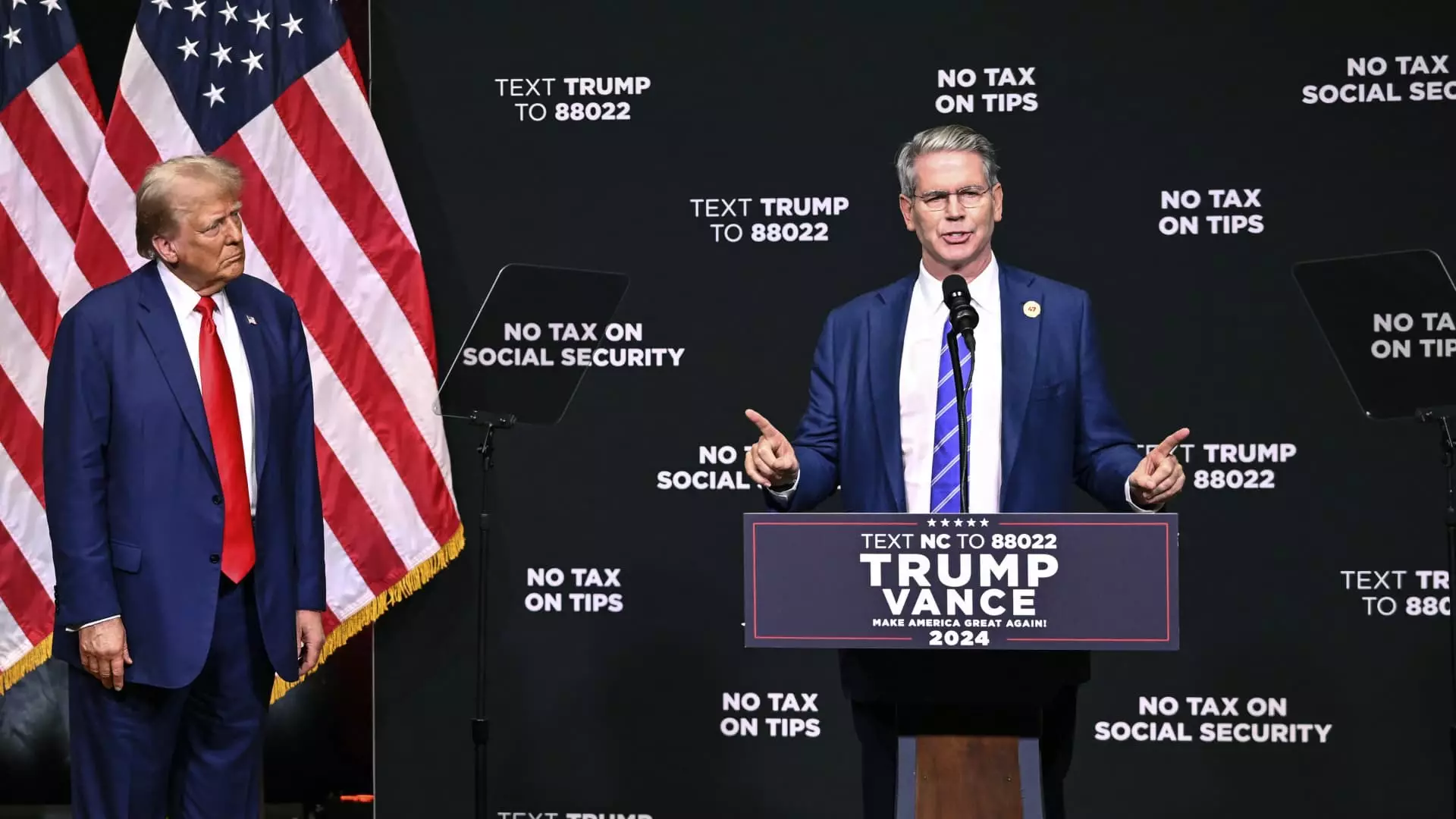As President-elect Donald Trump prepares to embark on his term, the nomination of Scott Bessent, a hedge fund executive and Trump loyalist, for the position of Secretary of the Treasury signifies an intriguing intersection of Wall Street savvy and populist economic principles. The move comes amid a backdrop of financial turbulence, where the U.S. faces soaring debt levels and persistent deficits, raising questions about the direction of fiscal policy in the Trump administration. With Bessent at the helm, the Treasury could be poised for significant shifts, both in policy and rhetoric.
At 62, Scott Bessent brings a myriad of experiences as the founder of Key Square Group, and he is seen as a strong contender for a position that holds immense power in shaping the economic future of the United States. Notably, Bessent’s previous role as the chief investment officer for George Soros’ fund presents both an asset and a potential liability in the eyes of conservative supporters who may view his association with the billionaire investor as a conflict of interest. Despite this, Trump has lauded Bessent as “one of the world’s foremost international investors and geopolitical strategists,” a statement that underlines both Bessent’s expertise and Trump’s reliance on familiar faces from the business community to navigate complex economic issues.
Trump’s economic agenda has consistently called for a blend of deregulation and protective trade measures. Bessent appears to share this philosophy, advocating for gradual tariffs coupled with initiatives aimed at reinvigorating American manufacturing and achieving energy independence. This alignment could facilitate the implementation of Trump’s broader economic strategies but raises concerns about the implications of these policies on international trade relations.
Bessent’s tenure in the Treasury will not be without hurdles. The United States grapples with an astronomical national debt exceeding $36 trillion, of which a staggering $28.7 trillion is owed by the public. Projections indicate that under Bessent’s oversight, the fiscal deficit is likely to approach $2 trillion by 2025, with related debt servicing costs of around $1.2 trillion. As he steps into this pivotal role, Bessent must steer the Treasury through these financial challenges while simultaneously championing Trump’s vision of a restructured economy that prioritizes American interests.
Critics within Trump’s circle have expressed reservations regarding Bessent’s commitment, particularly with regard to tariffs. While Bessent is not seen as staunchly pro-tariff as some of his contemporaries, his nuanced perspective may provide an opportunity for the administration to engage in more calculated trade discussions. Meanwhile, speculation about subsequent appointments, including that of former Federal Reserve Governor Kevin Warsh, suggests that there are strategic moves at play to create a cohesive economic team that can adapt to the fast-paced nature of financial markets.
The Role of Philanthropy and Public Perception
Furthermore, it is worth noting Bessent’s philanthropic endeavors through associations with institutions such as Yale University and the Rockefeller University, which highlight a commitment to the broader community beyond mere financial gain. This aspect of his profile may help to soften some public skepticism towards his appointment; however, it remains to be seen how these affiliations will influence his policy decisions at a time when economic equity is a topic of rampant discussion.
Ultimately, Bessent’s appointment signifies not just a continuation of Trump’s economic ambitions but also a potential pivot in how the administration engages with economic complexities and public sentiment. His ability to balance the demands of the financial markets with the populist pressures from Trump’s base could define his tenure. The appointment promises to contribute to a period of intensifying scrutiny on fiscal policies and international trade as the U.S. endeavors to solidify its economic standing on the world stage.
As the landscape continues to evolve, stakeholders across sectors will be closely monitoring Bessent’s actions within the Treasury, hoping for stabilization amidst a highly polarized economic climate. This appointment embodies a gamble for Trump, championing an insider who understands the market but has a history that could alienate certain factions of his base. Whether this will yield positive or negative results remains an open question for the American electorate.


Leave a Reply